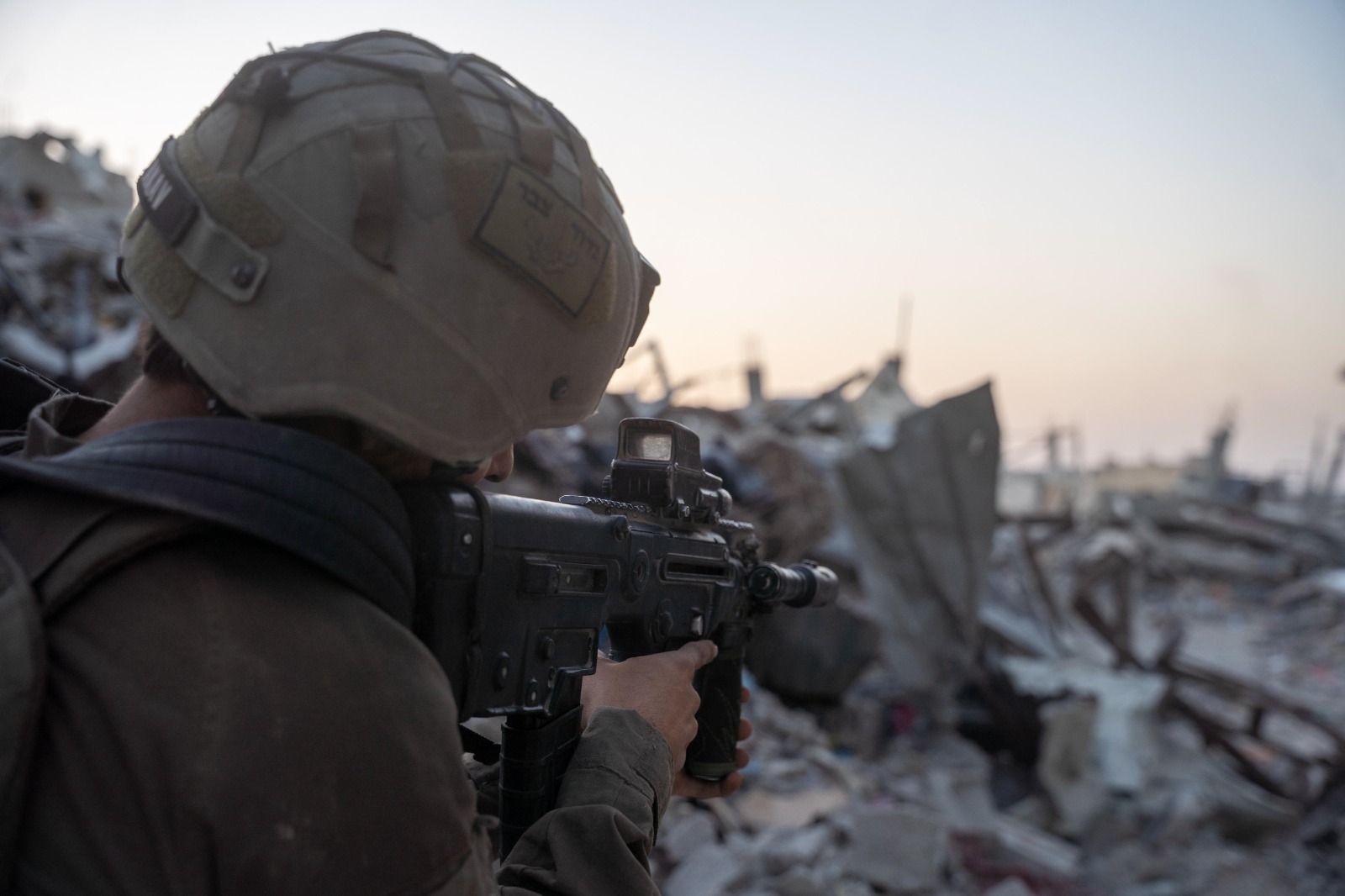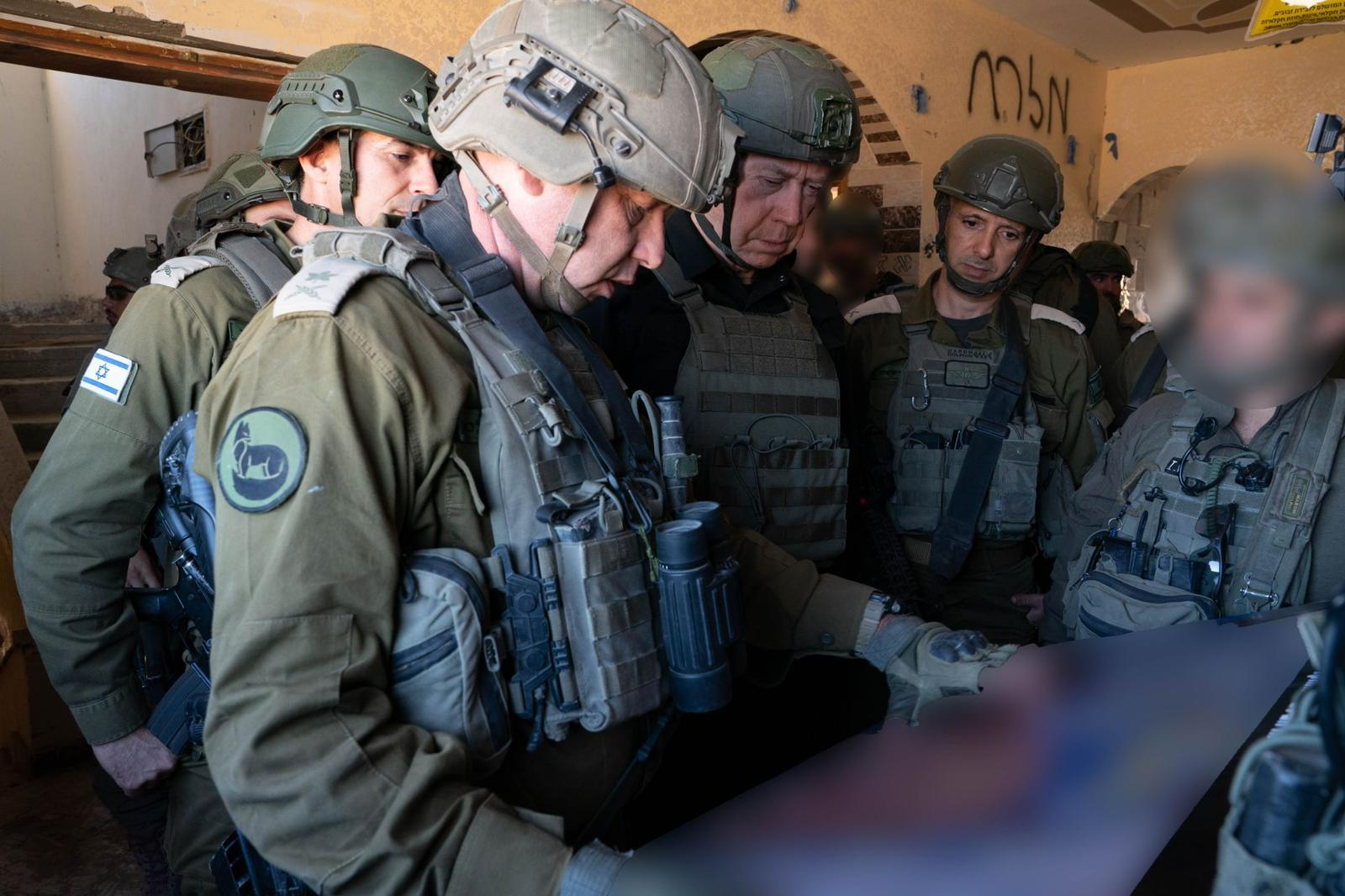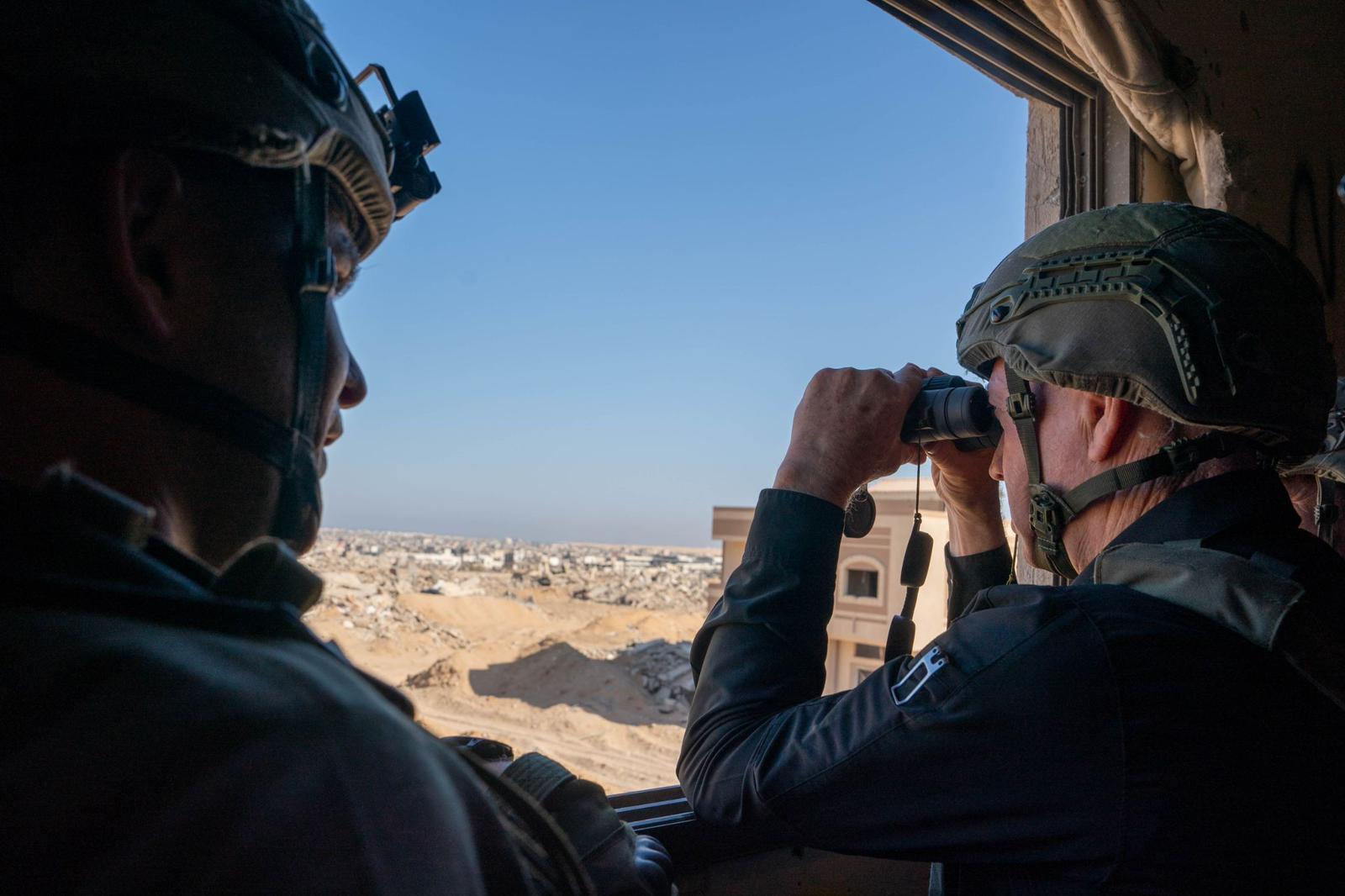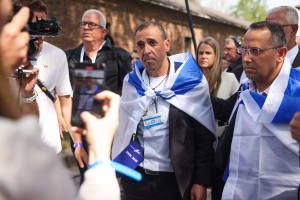IDF to keep military pressure on Hamas to create conditions for hostage deal, vows DM Gallant
Recent alleged mass-casualty strikes renew international pressure on Israel

Israel Defense Forces will continue to exert maximum pressure on Hamas terrorists in Gaza to create the conditions for a hostage-release deal to be secured, Defense Minister Yoav Gallant vowed during a visit to troops in southern Gaza on Wednesday.
Gallant was shown the location where Hamas leader Yahya Sinwar was eliminated in Khan Younis and visited soldiers stationed in Rafah and along the Philadelphi Corridor, before holding an operational assessment with the top IDF commanders in Gaza.
“In any place where Hamas rears its head, it meets the IDF – whether in Rafah, Khan Younis, or Jabaliya- wherever Hamas rises, it is taken down. Your [military] actions led to the conditions that ultimately caused Sinwar to make a mistake [leading to his elimination],” Gallant said.
About two weeks ago, Sinwar was killed in a chance encounter with a routine IDF patrol in Khan Younis, after an 11-month-long manhunt.
“The central issue here is to continue exerting as much [military] pressure on Hamas as possible, in order to create the conditions necessary to ensure the return of the hostages. Your duty is to exert military pressure and eliminate and imprison terrorists,” Gallant told the soldiers.

Sinwar's death created new momentum to renew the stifled hostage deal negotiations in recent weeks.
According to the most recent Qatari proposal, a first, smaller deal would see 11 to 14 Israeli hostages freed from Hamas captivity – primarily women, children and the elderly – in exchange for a 30-day ceasefire and several Palestinian prisoners being released from Israeli jails.
“The political echelon must do what is necessary to bring about a deal. You [referring to the troops] must apply military pressure and do what is necessary to create the conditions required for us to carry out a deal. This is our most important mission in Gaza at this time,” Gallant emphasized.
“We have routine tasks as well – defending Israeli communities and troops, and maintaining our freedom of operation in Gaza. You apply pressure – do what is necessary and we will bring about a deal because you created the conditions for us to carry it out, and I hope that we will do it.”

While the IDF has significantly reduced the number of active troops in Gaza – and recently wrapped up its single large-scale ongoing operation in Jabaliya – smaller raids and airstrikes have continued.
On Thursday, the military said soldiers of the 162nd, 252nd and the IDF Gaza Divisions were continuing to fight Hamas terrorists. In Jabaliya, dozens of terrorist buildings and munitions warehouses were attacked, while in the center of the enclave, forces destroyed a munition production site and Hamas infrastructure.
In recent weeks, several alleged mass-casualty airstrikes by the Israeli Air Force have received renewed attention from international media.
On Tuesday, Palestinian sources reported that over 90 people were killed in a strike in Beit Lahiya, including at least 20 children.
U.S. State Department Spokesman Matthew Miller called the strike “a horrifying incident with a horrifying result” and said the Biden administration had asked Israel for information about the strike.
The IDF responded by once again urging media outlets “to be careful with information published by Hamas, as has been proven [wrong] in several previous events,” adding that the area is an active combat zone and that residents were warned to evacuate earlier this month.

On Wednesday, an anonymous IDF source told The Times of Israel that the strike was aimed at a Hamas spotter holding binoculars and wasn’t meant to bring down the whole building. The source said the IDF didn’t know the building was used as a civilian shelter.
The Hamas-run Gaza Health Ministry later revised its claims, reporting that around 70 people died in the strike, with half of the casualties being women and children. Casualty counts from Gaza do not distinguish between terrorists and civilians.
The military source added that IDF intelligence reported lower casualty numbers, which included several known terrorists.
The difficulty in distinguishing between civilian and terror targets was underlined again when the IDF announced on Wednesday that it had struck Hamas and Palestinian Islamic Jihad (PIJ) terrorists operating in the humanitarian zone in Khan Younis.
“Before the attack, many steps were taken to reduce the chance of harming civilians, including the use of precision weaponry, aerial observations and additional intelligence information,” the IDF noted.
The majority of announcements involving significant IDF airstrikes in recent months noted that the targets were discovered while hiding in schools, hospitals or humanitarian zones.

The All Israel News Staff is a team of journalists in Israel.














